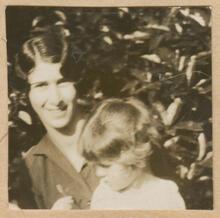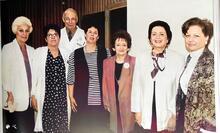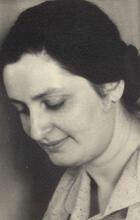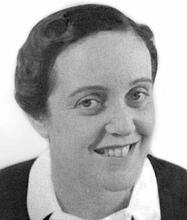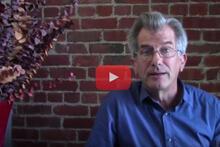Nettie Sutro-Katzenstein
Dr. Nettie Sutro-Katzenstein left a promising writing career because she was determined to aid the refugee crisis after the Nazi rise to power. In 1933 she established SHEK (Schweizer Hilfswerk fur Emigrantenkinder), a non-denominational Swiss women’s organization for helping refugee children. An effective and dynamic leader, Sutro-Katzenstein directed SHEK headquarters, recruited volunteers, and maintained contact with eleven other SHEK branches. Between 1933 and 1939, SHEK brought 5,000 refugee children, 80% of whom were Jewish, from Paris to Switzerland, providing them with food and medical care. Sutro-Katzenstein also obtained permission to bring 300 German-Jewish children to Switzerland after Kristallnacht. In 1942, Switzerland put SHEK in charge of refugee children in Swiss internment camps who had crossed the border illegally. Between 1939 and 1948, SHEK cared for 5,000 such Jewish refugee children.
Dr. Nettie Sutro was “mother” to nearly ten thousand Jewish refugee children in Switzerland during the years 1933–1948. One of the few women to have completed a Ph.D. in Switzerland, she left a promising career as writer and translator when suddenly faced with the plight of Jewish refugee children in flight from the Nazi regime. To help these children, she founded and headed the Schweizer Hilfswerk fur Emigrantenkinder (SHEK), a non-denominational Swiss women’s organization that cared for refugee children, both Jewish and non-Jewish, in Paris and in Switzerland.
Nettie Sutro was born Nanette Gerstle in Germany on November 1, 1889. She used her grandmother’s maiden name, Sutro, professionally. She studied philosophy, history and sociology at the University of Munich, then continued her studies at the University of Bern. After receiving her Ph.D. from the University of Bern in 1921, she translated and edited works by Ignazio Silone, Gerschom Scholem, Emil Ludwig and other well-known authors, and published articles and plays. She married Dr. Erich Katzenstein, a neurologist, and gave birth to two sons, Georg and Gabriello. The couple settled first in Ascona and moved to Zurich in 1927.
Founding SHEK
Hitler’s rise to power in Germany in January 1933 and the subsequent flight of thousands of Jews from Nazi Germany brought about a dramatic change in Nettie Sutro’s life. Upon hearing reports of the desperate situation of German Jewish refugee children in Paris, she established SHEK together with other Jewish and non-Jewish Swiss women to help the refugee children. The committee raised funds for medical care and a day care center for German Jewish refugee children in Paris and for the children of non-Jewish Russian expatriates who had fled to Paris after the Russian Revolution. Nettie Sutro headed SHEK from its inception until its closure at the end of 1948. Her energy, dedication and organizational skills, and her ability to attract and to motivate volunteers, both Jewish and non-Jewish, made her an effective and dynamic leader. She directed the SHEK headquarters in Zurich, maintained contact with the branches of SHEK in eleven Swiss cities, formulated SHEK policies and represented SHEK to Swiss government officials. Her tact and diplomatic skills enabled her to maintain good relations with Swiss government leaders. Nettie Sutro insisted that SHEK remain non-denominational and non-political. This policy allowed SHEK to gain the support of many sectors of the Swiss population and, in some cases, to influence Swiss government policy.
1933-1938
Beginning in 1933, SHEK obtained permission to bring groups of underprivileged refugee children from Paris to Switzerland for periods of three months. The children, who were placed with Swiss families or in Swiss children’s homes where they received good nutrition and medical care, returned to Paris with their health much improved. Nettie Sutro and her co-workers negotiated with the Swiss federal and cantonal governments for entry permits for the children, made all travel arrangements, found placements for the children and supervised them during their stay in Switzerland. Between 1933 and 1939 approximately five thousand children, more than eighty percent of them Jewish, participated in the program, which ended with the outbreak of World War II.
In November 1938, shortly after the pogrom of November 9 and 10 (“Kristallnacht”), SHEK obtained permission to bring three hundred Jewish children from Germany to Switzerland on a temporary basis. This permission was obtained at a time when Swiss government policies severely restricted the entry of Jewish refugees. Many of the children remained in Switzerland until the end of World War II.
SHEK Activities During the War
During the war, the Swiss government restricted or entirely prohibited the entry of Jewish refugees into Switzerland. However, children under the age of sixteen who managed to cross the border illegally were allowed to remain. As a result, Jewish children were smuggled into Switzerland from France, Belgium, Holland and Italy by Jewish and non-Jewish organizations between 1942 and 1944.
In December 1942 the Swiss government officially requested that SHEK take charge of refugee children in Swiss internment camps who had crossed the border illegally with or without their parents. SHEK volunteers interviewed the children in the camps, placed them with families or in children’s homes, and continued to be responsible for their welfare throughout their stay in Switzerland. Nettie Sutro insisted that whenever possible Jewish children be placed with Jewish families or in Jewish children’s homes, but when not enough Jewish places were available, she approved the placement of Jewish children with Christian families or in non-Jewish children’s homes. Between 1939 and 1948, SHEK cared for nearly five thousand Jewish refugee children, most of whom had entered Switzerland illegally. Nettie Sutro gave personal attention to children who had special problems and often met with individual children in her office in Zurich. Because of the expertise she had acquired in dealing with refugees, she was invited to sit on the Special Government Commission for Refugee Problems.
Nettie Sutro was shocked and angered by the Swiss government’s refusal to allow Jewish children from France to enter Switzerland legally during the war. In September and October 1942 she visited France, met with representatives of OSE and visited internment camps where Jews were awaiting deportation. On her return to Switzerland, she publicized the plight of Jewish children in France and tried unsuccessfully to influence Swiss policy. Thereafter, she encouraged SHEK activists to help Jewish refugee children who had succeeded in entering Switzerland illegally.
Post-War Work
After the war, the Swiss government announced that all refugees, except for special hardship cases, would have to leave the country. Nettie Sutro tried to locate surviving relatives of the children who had been cared for by SHEK. She obtained affidavits for children to enter the United States and even accompanied groups of children to ensure that they were settled properly. She tried to find an individual solution for each child. At the end of 1947, she decided that SHEK had fulfilled the task for which it had been created, and disbanded the organization. In 1952 she published a memoir of her activities, Jugend auf der Flucht 1933–1948.
Nettie Sutro’s involvement with Jewish refugee children did not end with the dissolution of SHEK. In 1952 she helped found the children’s village Kiryat Yearim in Israel to rehabilitate child Holocaust survivors and from 1952 to 1963 she directed the Friends of Kiryat Yearim.
Nettie Sutro died in Zurich on September 20, 1967.
Selected Works
Jugend auf der Flucht 1933–1948. Zurich: Europa Verlag, 1952
Hilb, Liselotte. “Ein Leben fur Flüchtlingskinder.” Neue Züricher Zeitung (November 1, 1989).
Hilb, Liselotte. “Erinnerungen an Dr. Nettie Sutro.” Neue Züricher Zeitung (1989).
Hilb, Liselotte. “Anmerkungen: Schweizer Hilfswerk für Emigrantenkinder.” Neue Züricher Zeitung (1998).
Kadosh, Sara. “Jewish Refugee Children in Switzerland 1939–1950.” In Remembering for the Future: The Holocaust in an Age of Genocide, edited by Elisabeth Maxwell and John K. Roth. London: Palgrave Macmillan, 2001.
Schmidlin, Antonia. Eine Andere Schweiz, Helferinnen, Kriegskinder und Humanitäere Politik 1933–1942. Zurich: Chronos, 1999.
Nettie Sutro Collection at the Archiv für Zeitgeschichte, Zurich.

